#movie on congress radio
Explore tagged Tumblr posts
Text
Ae Watan Mere Watan - Sara's Frequency Falters in Radio Drama
⭐⭐⭐ Rating: 2.5 out of 5. Sneha Jaiswal (Twitter | Instagram) Director: Kannan Iyer Writer: Darab Farooqui, Kannan Iyer “This is the country’s radio calling on 42.34 meters (wavelength) from somewhere in India to somewhere in India.” The 2024 Bollywood movie “Ae Watan Mere Watan” is a historical drama set in the 1940s, celebrating the life of real-life freedom fighter Usha Mehta (Sara Ali…
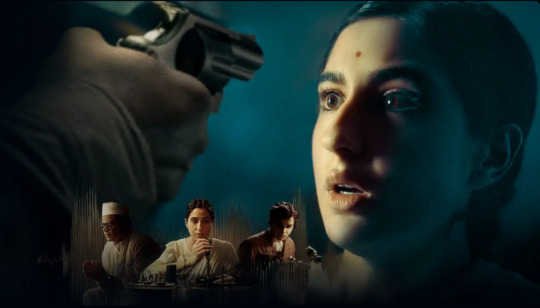
View On WordPress
#Ae Watan Mere Watan#Ae Watan Mere Watan 2024 movie review#Ae Watan Mere Watan review#Entertainment#freedom fighters#freedom struggle movies#movie on congress radio#sara ali khan#Usha Mehta
0 notes
Text
Etta James - At Last 1960
"At Last" is a song written by Mack Gordon and Harry Warren for the 1941 musical film Sun Valley Serenade, and was performed in the film by Glenn Miller and his orchestra, with vocals by John Payne and Lynn Bari, dubbed by Pat Friday. It was deleted from the film, although instrumental versions remained. The vocal version was however included in the 1942 movie Orchestra Wives, which also featured the Glenn Miller orchestra. It was sung by Ray Eberle and Bari, again dubbed by Friday. Glenn Miller and his orchestra recorded the tune several times, with a 1942 version reaching number two on the US Billboard pop music chart. It spent a total of 17 weeks on the chart.
In 1960, rhythm and blues singer Etta James recorded an arrangement by Riley Hampton that improvised on Warren's original melody, for her debut album At Last! (1960). In April 1961, it became her second number two R&B hit single and crossed over to pop radio, reaching number 47 on the Billboard Hot 100. Despite its modest pop chart standing, the song is well-known and is still played regularly on oldies radio stations and has become a musical standard. Following James's death in 2012, the song reached the top 40 in the UK charts. In 2009, her version was inducted to the Library of Congress' National Recording Registry. In 2021, it was ranked at number 115 on Rolling Stone's "Top 500 Greatest Songs of All Time".
"At Last" received a total of 81,3% yes votes!
youtube
398 notes
·
View notes
Text

**Summary**: When Jensen admits to going home with someone else, will his and Y/N's marriage survive?
**Warnings**: Angst, heartbreak, smut, language
Chapter 7
A/N: This is just for entertainment only. I have no idea how or where something like this would take place. Would it be in a courtroom, in front of a judge, would there be an official ruling? I DON'T KNOW!! I am just writing how I imagine it would go.
A few weeks later
The room feels stuffy and claustrophobic to Jensen but maybe it is just nerves and the smart suit he is wearing.
He sits at a long conference table between his lawyer, Thomas Bell and Y/N waiting for the others to join. A court reporter sits at the head of the table with her machine situated in front of her, ready to capture the conversation.
It had practically taken an act of Congress and a little bit of nudging from his lawyer for Y/N to agree to be here today.
Mr. Bell had persuaded her to accompany them saying it ‘showed unity and solidified Jensen as an upstanding family man’. She reluctantly compromised but has yet to meet his eye.
When Jensen tries to hold her hand, she jerks it away with a seething “Don't!” but never takes her eyes from the door.
About five minutes later, that door opens and in walks Athena with her own attorney and one of the friends that Y/N recognizes from the group at the bistro.
The three of them approach the table and sit down across from the Ackles’ and Mr. Bell.
“Good afternoon,” the man says. “I'm Nathaniel Howell, legal representation for Miss Athena Haligan.”
He shakes Mr. Bell's hand as he introduces himself, then does the same for each of them.
“Okay now that formalities are out of the way, let's get to it,” Mr. Bell says. “Your client is accusing my client of sleeping with and impregnating her. With my client's notoriety and fame, this is slander that could not only impact his family but his career.”
“My client is 9 weeks pregnant. Is your client denying that?”
“No sir. We are not denying she is pregnant, we are denying the possibility that Mr. Ackles here is the father.”
“Does your client, Mr. Ackles, admit to meeting Miss. Haligan at Twilight Terrace, where they hit it off enough for him to accompany her back to her home?”
“No, that's not how it happened,” Jensen speaks up, to the annoyance of his lawyer.
Mr. Bell clears his throat as he looks at Jensen scoldingly and then back to the others. “Mr. Ackles did approach Miss Haligan at Twilight Terrace, as I'm sure there are many witnesses to. They spoke and Miss Haligan allegedly claimed to have an item, a record album of his band that she asked him to sign-”
“Hold on,” Mr. Howell says, holding up his hand. “I thought Mr. Ackles was an actor. I looked at his dossier. He is listed as an actor with an array of t.v. roles and a few movie roles.”
“That's correct,” Mr. Bell acknowledges. “But just last year, he released a music album with a friend, the duo is called 'Radio Company'.”
“Thank you for clearing that up,” Mr. Howell says as he writes notes on a legal pad. “So, is your client denying that he accompanied Miss Haligan back to her home?”
“No, he did accompany her, under the assumption that he would be signing the album for her and then rejoining his friends at the hotel bar.”
“And,” Mr. Howell inquired with a brief glance to his client. “How does he recollect the night going?”
This time, Jensen is allowed to speak. He retells his side of the story, from the time he arrived at the rooftop bar to the moment Jared helped him clean the smeared lipstick from his skin at his trailer on the lot of Supernatural, where he also changed his shirt and tossed it before being dropped off at his house.
He internally cringes as he speaks about the whole ordeal in front of Y/N. He had tried to keep as much information away from her as possible. He didn't want her to hear about him seeing another woman's breasts or being kissed by the other female.
But that is nothing compared to how he begins to feel as he listens to a drastically different version when Athena takes her turn to give her account of the events.
After hours of the back and forth, Jensen feels dirty and worried. Athena's narrative has even him second-guessing himself. He can only imagine how Y/N feels.
‘Did I really blackout and have sex with that girl?’ bounces around in his mind.
According to her, Jensen never pushed her away and actually encouraged the encounter. When she had disrobed, he had enthusiastically groped and caressed her and they kissed as they undressed each other.
Athena had begged to perform fellatio and he had conceded. Then they had sex and he told her he was going to ‘fill her up’ and then did.
Afterwards, she claimed he got re-dressed and left without a word, leaving her there, in her bed, in tears.
Jensen paces back and forth outside the room after bolting from it, trying to remember it that way. But he couldn't. He didn't remember any of that.
He runs his hands through his hair as the door to the room opens. He looks up to see Y/N step out.
She walks up to him, places her palm on his cheek and smiles. “She's lying.”
At the same time as the meeting is beginning, across the city, a laptop is open,Tumblr displayed on the screen. The person scrolls down the page, reading each word intently; it’s familiar to the reader but they are trying desperately to figure out why.
As he finishes the fanfiction novel he sits back on his sofa to think. At first he thought the person may have just plagiarized another fic but the more he contemplates it the more he worries for his friends, Jensen and Y/N. Is Athena using this story to fill some twisted need and thus ruining his friends’ lives? With that thought he exclaims “Oh my fucking god!” before highlighting and saving the whole thing to a new document and pressing print.
As the pages fill, Misha begins investigating just who Deansgirl4ever is. He goes to her Tumblr profile and begins scrolling, looking for clues to her identity.
A few hundred scrolls later, he comes across a post about donations and notices she has included a link to a Facebook profile.
Clicking the link, Misha watches as Facebook loads up and clicks on pictures for Krissi Nelson. Most of the pictures include the same four girls, but then there is one that is just two of them.
Misha clicks on it and reads the caption ‘My best girl Athena <3’. He smiles as he realizes he has just come across the answer to his friends’ dilemma.
After the last page comes forth- the picture of the two friends- Misha checks the time.
Jensen had told him what time the deposition was, so he grabs the stack of papers and his jacket before heading out the door.
Driving across town, it seems as if he was caught by every redlight and slow driver in the whole province. Misha just hopes he can make it in time.
Once he gets to his destination, he finds a parking space and grabs his loot and exits the car.
Sprinting across the lot, he heads to the City Hall building where he has to show his ID and ask for directions to the correct room.
The deposition room is on the floor above so he hurries to the elevator, pressing the call button numerous times.
As soon as the elevator dings and the doors slide open on the next floor, he steps out and finds Jensen and Y/N in a tight embrace.
“Guys,” he says loud enough for them to hear him. When they break apart and look at him curiously, he smiles. “I found the answer to your prayers.”
⭐️⭐️⭐️⭐️⭐️⭐️⭐️⭐️⭐️⭐️⭐️⭐️⭐️⭐️⭐️⭐️⭐️
Preview from next chapter: Y/N stands up quickly, knocking her chair back and to the ground and before anyone could do anything, lunges over the table and slaps the young girl.
“You fucking whore!” .
@spnbaby-67 @sea040561 @delightfullykrispypeach @larajadeschmidt13 @atc74 @vicariouslythruspn @squirrelnotsam @ironreviewangel @blacktithe7 @hoboal87 @mogaruke @supraveng @lyarr24 @kazsrm67 @chriszgirl92 @deanwithscissors @raisinggray @fanfic-n-tabulous @hobby27 @stoneyggirl2 @purpleeclipseeggsland @kmc1989 @leigh70 @nancymcl @muhahaha303 @justwhisperingfantasies @jackles010378 @monkey-d-hoshizora98 @deanna45 @ozwriterchick @mandee7 @spnaquakindgdom @impala67rollingthroughtown @generalmoonpolice @1313diana @roseblue373 @palerogue1 @deansimpalababy @queen-cs
#jensen ackles#supernatural rpf#spn rpf#jensen x wife!reader#angst#heartbreak#cheating#jared padalecki#cliff kosterman#misha collins#smut
36 notes
·
View notes
Text
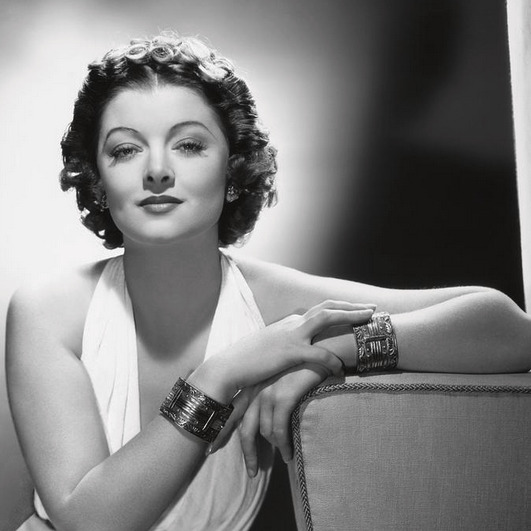
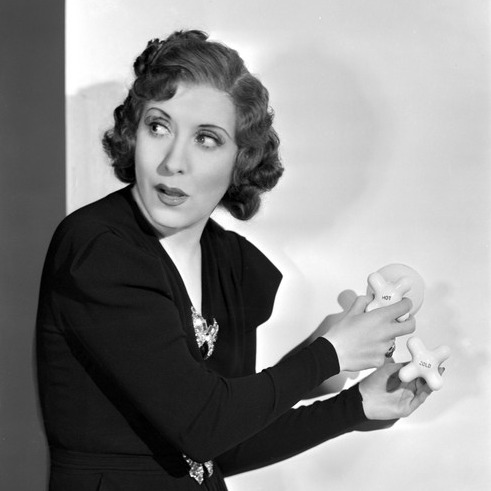
Propaganda
Myrna Loy (The Thin Man, Manhattan Melodrama, Mr Blandings Builds his Dream House)—Started out a slinky silent screen vamp. Became a screwball lead who had a blast drinking, being married to William Powell, solving mysteries, and taking her dog everywhere in the Thin Man Movies. Broke our hearts in The Best Years of Our Lives and played a string of dream wives. Remained hot the entire time. Decades of hotness.
Gracie Allen (A Damsel in Distress, Honolulu)— The funniest woman who ever lived, she was the brains behind an absolutely brilliant radio show that she did with her husband George Burns. The radio show was later turned into a television show (which you can find on Youtube) but during the radio days, it was announced that Gracie would be running for President of the United States for the year of 1940. She was running for the Surprise Party, and refused a Vice President as, according to her, there would be no room for vice in her white house. Her slogan was "Down with common sense -Vote for Gracie Allen." [more about this beneath the cut]
This is round 1 of the tournament. All other polls in this bracket can be found here. Please reblog with further support of your beloved hot sexy vintage woman.
[additional propaganda submitted under the cut.]
Myrna Loy:
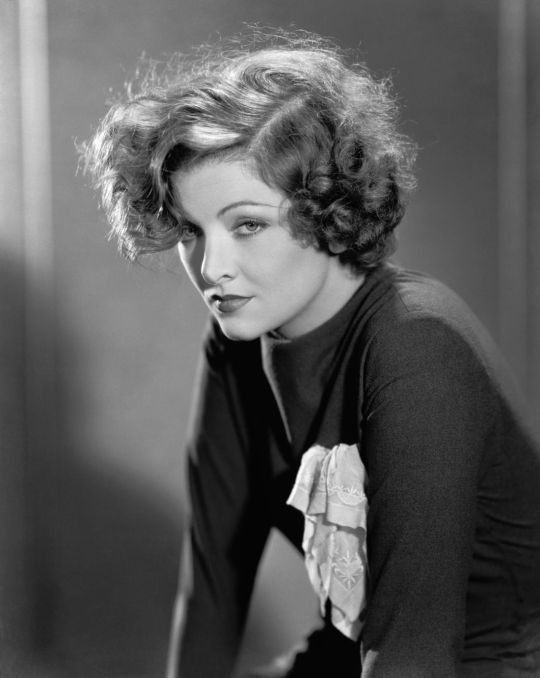
Myrna Loy excelled at playing coy women, so common in screwball comedies in the 40s. She batted her lashes, and shrugged with grace, and made her costars look like foolish heels next to her. She charmed with sneaky elegance, well-placed pouting, and repartee. Besides, she was sultry AF.
While Myrna certainly looked hot in some her earlier vampy exotic bad girl roles, I think shes hottest when her comedic chops got to be displayed. Her dry wit, comedic timing, and subtle facial expressions make her the queen of deadpan snark.

She's just very Mother
So beautiful and popular she was crowned Queen of the Movies in 1936, Myrna Loy was also an amazing actress. She's best remembered for The Thin Man and sequels, where she gets to show off her comedy skills, adding irresistible impish charm to her classic beauty and dancer's figure.
THE SASS
One of the few actresses who managed to successfully transition from silent to talkies, never won an Oscar but was at one time the highest paid woman in Hollywood. Advocated for better roles and pay for Black actors in the 1930s, so passionately anti-Nazi in the 40s she made Hitler's blacklist, spoke out against Joseph McCarthy during the Red Scare, and advocated for fair housing in the 1950s and 1960s, all while being hot as fuck opposite William Powell, Clark Gable, Cary Grant, Spencer Tracy and a whole galaxy of the Hot Vintage Men Poll all-stars.
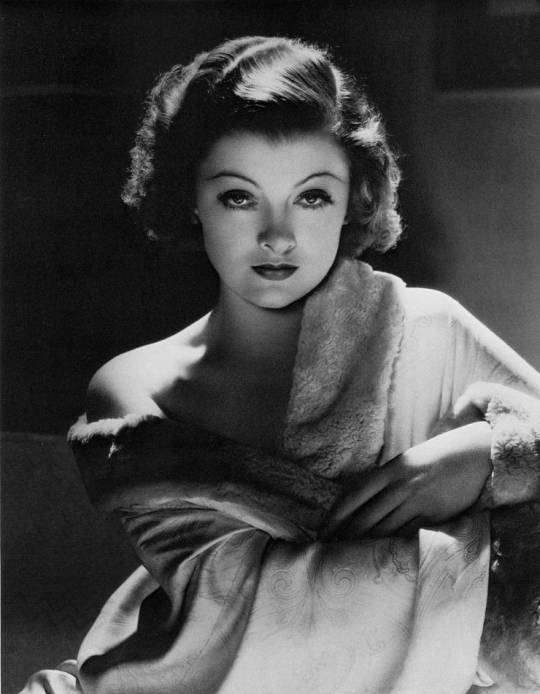
Cute as a button with so much RIZZ! She and whatsisname in The Thin Man are relationship goals.
She was literally called the Queen of Hollywood! She is so sassy and funny in the whole Thin Man series. Absolutely hot in those, and who doesn’t love a woman who can laugh? She had the sultriest gaze and that style! Also before she was a star she sat as the model for an iconic statue for a school (representing “Fountain of Education”).
the glamour!! the banter!! the comedy!!
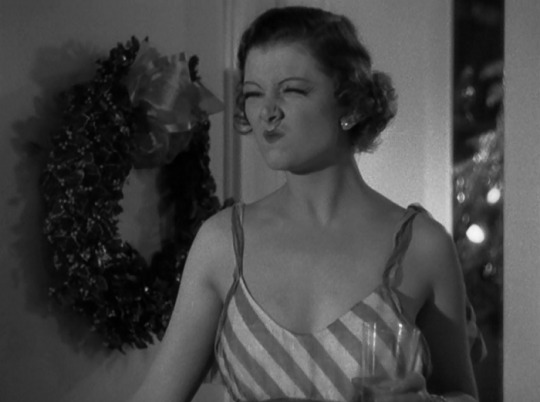
She's got this cute kinda scrunched up face AND shes funny AND shes got a bangin body.
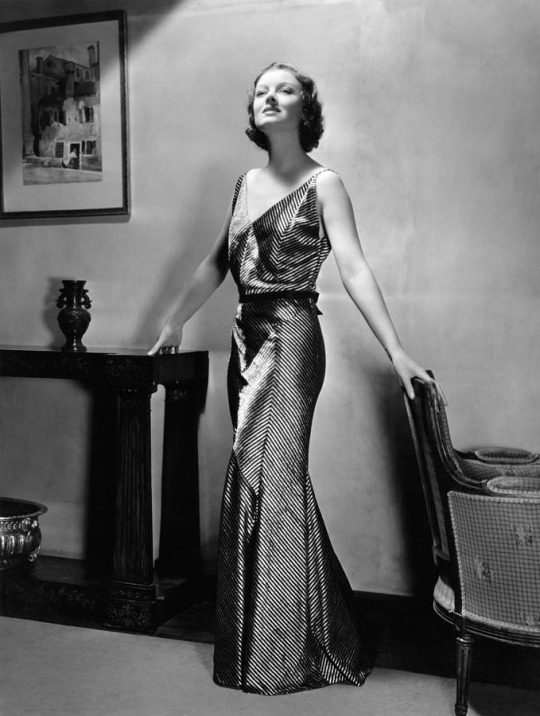
Gracie Allen:

Continued from previous propaganda: "We don't want to get rid of men entirely," Allen said, according to a story in the April 22, 1940, Indianapolis Star. "All we want to do is make them unconstitutional and keep them out of circulation, but have them handy when there's no place else to go."
On the Neutrality Bill pending in Congress: "If we owe it, let's pay it." On recognizing Russia: "I don't know. I meet so many people." On which political party she was affiliated with: "I may take a drink now and then, but I never get affiliated.""
She did have to drop out eventually, with World War 2 being on and all, but thousands of people still wrote her in anyway, even if the FDR won the popular vote in the end. (https://www.jsonline.com/story/life/green-sheet/2016/03/31/that-time-a-comedian-won-the-wisconsin-presidential-primary/84944806/)
253 notes
·
View notes
Text
This, and everything from Scene on Radio, is just fucking excellent! The start of this essay:
I do not believe that a second American civil war – an active, ongoing shooting war, whatever that would look like in our time – is inevitable. I fervently hope we don’t go there. But for years now, some have been murmuring that a cold civil war is well underway in the United States. I’ve murmured it myself. Now, a few weeks into this blitzkrieg against the American system of government also known as the second Trump presidency, there’s no denying that our cold civil war has entered a new, excruciatingly dangerous phase. I won’t catalog every action by the Trump regime that has crashed through norms, laws, or the Constitution. A few that stand out: The executive order flatly contrary to the 14th Amendment’s guarantee of birthright citizenship; the attempt to freeze payments from most government programs created and funded by Congress; the purges of FBI agents and Justice Department lawyers who worked on the criminal investigations of Trump; the order to summarily kill off the United States Agency for International Development (USAID); the move allowing Elon Musk and his minions to access the Treasury Department’s payment and data systems to do who knows what.
2 notes
·
View notes
Text
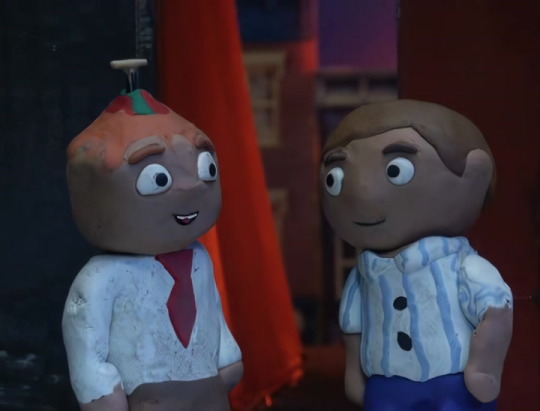
Moral Orel: “Abstinence” | January 18, 2009 | Unaired Special
Abstinence, “the nearly lost episode of Moral Orel”, or “episode 14 of 13” was an episode of the show that was left in an incomplete state thanks to Adult Swim cutting down the episode order. The audio for the episode was recorded, at least mostly (some characters might be scratch tracks, but I’m not certain), but the animation hadn’t been done. So, some people who worked on the show took it upon themselves to animate the radio play using “Orel’s Movie Premiere” style claymation.
I’m glad they did it, because this is a worthy episode to have exist, even if it’s not 100% a “real” episode. This actually comes pretty damn close to being as satisfying as watching a normal episode. I wish we lived in the alternate universe where Dino manages to talk Adult Swim into letting him animate the show this cheaply in exchange for more episodes.
This episode takes place during season two (with a post-Nature scene at the end). Doughy has long been neglected by his parents, who simply give Doughy a few bucks and ask him to stay out all day so they can neck with each other. They are now requesting Doughy stay out overnight. Not used to non-daytime activities, Orel encourages Doughy to just do what he does and walk around trying to help people. Doughy keeps encountering people trying to have sex with each other and manages to cockblock them all.
This leads to Doughy getting a job cockblocking actual roosters from impregnating the farmer’s chickens. He loses this job because Ms. Censordoll’s campaign to illegalize succeeds. Doughy winds up working for Ms. Censordoll as a masked superhero that goes around breaking up congress everywhere.
This one has a very funny joke at the beginning, where Doughy and Orel are waving goodbye to a busload of gay men, and remarking how it was a big mistake bussing them into Moralton. Do you think the show was cleverly going to show the gay dudes in another episode to explain the beginning of this one? And, don’t you think it’s sad they left on the bus and we didn’t get to watch them walk away (hubba hubba). I also laughed at the farmer’s extremely dumb and convoluted reason for not caging his roosters (it’s basically so he can say a dumb thing when asked why he’s not caging his roosters).
EPHEMERA CORNER:

Moral Orel: The Unproduced Scripts
A couple of scripts for episodes have been shared online. I remember Dino posting one on his Myspace page. The episodes are:
Raped: This episode was going to be a late season three episode. The original arc for the season was meant to include Arthur Puppington, Clay’s father, moving into Orel’s bedroom while he waits to die of some painful life-ending disease.
Miss Sculptham finds that she is still pregnant post-abortion. That’s because she had twins, and only managed to kill one of them. So she arranges a visit to the prison to talk to Cecil Creepler’s (the guy what raped her) cell-mate to find out what his whole deal was (you know, being naturally curious about the father of her future child). This leads to her deciding to marry this man, even though he’s spending the rest of his life in prison. Orel is being a bitch about it, and celebrates when the guy backs down. The end of the episode is Sculptham falls in love with a woman and is denied for a marriage license, because “this is America”. She can get married to an actual convicted rapist, but not to another woman.
I was about to comment on the time and place in which this episode was produced, but then realized: I have no idea how legal gay marriage actually is these days. Weird guys have been fighting over the stuff a lot lately. It took a weirdly long time for gay marriage to become any kind of legal here, and it’s still contentious. I just have a vague sense of reading it in 2009 and it feeling very pointed and topical. Pretty weird that it still sorta might be.
This episode was sorta billboarded in Alone, where we learn about Scultham’s rape and her abortion. There also a reference to this in “Abstinence”, where one of the encounters Doughy puts a stop to is one between Creepler and Scultham.
Narcissism is the other “lost” episode. I never actually read this script before tonight, and I don’t know what the origin of this one’s leakage is or if it’s liberation was acrimonious or not. This one is another Putty-centric episode and is basically a follow-up on the events of Sundays. Putty becomes so obsessed with Florence and uninterested in other women that it makes him attractive. He unceremoniously beds all the hotties of Moralton and doesn’t feel a thing the entire time. His obsession with Florence is simply because she’s disappeared, and Putty doesn’t know where she went. When he finally finds her, she’s lost weight and is generally happier. It appears they get together by the end of the episode.
I think Arthur is also in this episode, but I forget. I remember Oral mentioning him in a funny bit where he says he would do unto others with his Grandpa, who is currently dying in his bed. Orel says his Grandpa would probably let Orel die in his bed if things were the other way around.
I found a thing on the Moral Orel wiki where Dino apparently posted the synopsis for the some of the unproduced scripts. I’d been looking for this to quote and kept coming up dry, so now that i found it, I’m just gonna paste it here in this post. The links link to pages on the wiki, and the scripts I described are available on their respective pages:
1. Easter: "Orel's Grampa (Clay's father) comes to Moralton to tie up loose ends before he dies. He ends up sharing Orel's bed as his death bed for the last ten episodes, giving Orel good advice. (happens during the Sacrifice episode)." 2. Nurture: "Shapey and Block nurture each other and grow emotionally." 3. Narcissism: After cutting it off with Florence, Putty becomes disillusioned with all women. This makes him incredibly attractive to all the females in Moralton and he becomes the most available bachelor in town, f***ing tons of *****. This makes him even more bored with every lady out there. He starts picturing Florence as he's f***ing everyone. When he finally runs into Florence, she is dating someone else and is really really thin. Putty's disappointed in her appearance. He's been picturing fat Florence, and even though she's prettier on a shallow level, longs for her previous look. She explains that she got so depressed when he stopped seeing her that she didn't feel like eating. He happily tells her now that he's back and she can get fat again. She is insulted by his self-centered attitude and tells him to go away. In the end, I think he probably wins her back though by showing he really cares. 4. Untitled: "Bloberta and Officer Papermouth accidentally bump into each other late at night, both reaching into the garbage can outside Nurse Bendy's apt. and simultaneously grabbing the "Sonny" Teddy bear. Papermouth chivalrously let's Bloberta keep it, and this starts off an affair between the two of them. It ends up being very good for the both of them. Not sure how Clay reacts. Didn't get very far on this one." 5. Untitled: "I wanted to write the continuing saga of Orel and Christina, but never got to it. No solid ideas on this." 6. Raped: A script for this episode was briefly put on Stamatopoulos's MySpace blog. It expanded on Miss Sculptham's trauma over being raped. She would take the kids on a field trip to prison to meet the man's cellmate and strike up a brief relationship with him. 7. Death: "Orel's Grampa finally dies. Orel doesn't find too much solace from anyone and becomes a Goth kid, getting heavily into the Christian Death Metal band: Multiple Godgasm. Don't want to say much more about this, on the remote chance that there will be a Moral Orel movie, I'd like to use a lot of this story."
And that’s it for Moral Orel. Unless you count the special. Unless you count the Frankenhole Bumper where he cameos. Unless you count Australian DVD releases. But you can COUNT on me… blogging about it!!!!
17 notes
·
View notes
Text

Walt's Museum in his hometown of Marceline is a really fun place to visit. Just like with any Disney Theme Park, you enter and exit through a gift shop. Then as you go around the corner you see a giant Mickey Mouse in a train conductor's uniform. This Mickey is one of 75 that were made for the Mickey's 75th Birthday Celebration at Walt Disney World in Kissimmee, Florida. Then the entire collection toured the country. After the tour was completed they were sold at auction and one of the patron's of the museum bought the All Aboard Mickey and gave it to the Museum where it resides to this day.
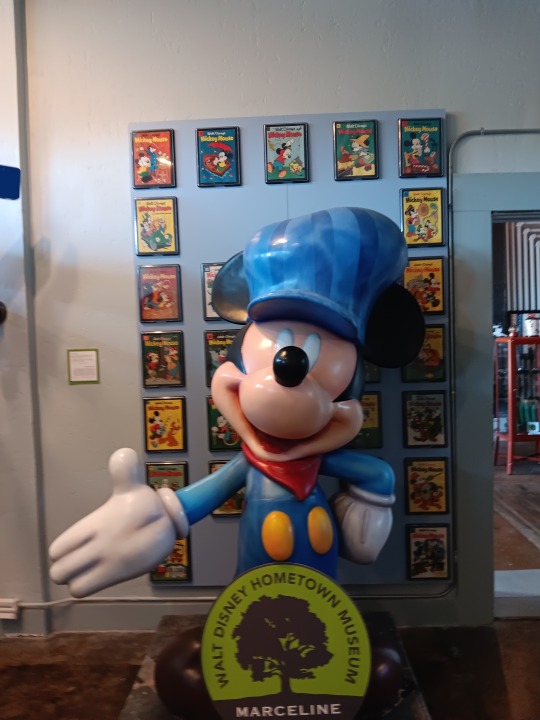
The Museum resides in an old train Depot and the Ticket counter is left preserved the way it was when it still operated as a depot. You can stand on the spot where Walt "found the Magic" after getting off the train as a young boy in Marceline. He only spent 5 years there as a boy but it was the key to his success. "To tell the truth, more things of importance happened to me in Marceline than have happened since - or are likely to in the future." Walt wrote in a letter to the local newspaper in 1938.
The museum is two stories of memorabilia, artifacts and history. There is a 2 hour star studded film about Walt Disney's impact on Marceline and the world as told through the voices of his friends and family. There are models and drawings of many of the elements of all the theme parks, early artwork and conceptual designs, photos, letters and so much more. There are multiple video loops playing throughout the museum with interviews and clips from some of the most historical moments of Walt Disney's career. And so many of them tie back directly to this tiny little town in rural America. Here are a few pictures of the museum.
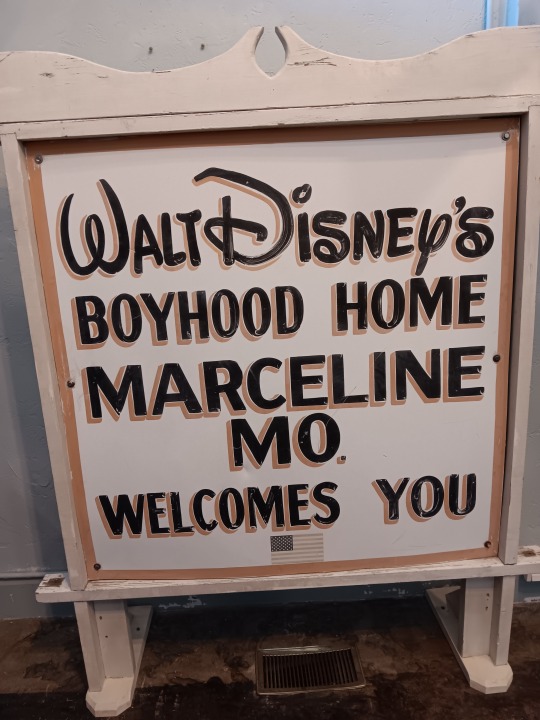





While you could spend hours in the museum alone there is more to do in Marceline than just the museum. A couple of blocks away is a US Post office that issued a a stamp honoring Walt Disney. Commemorative stamps are generally issued 10 years after a person has died and it has to be passed by an act of Congress. Believe it or not only two years after Walt Disney's death a unanimous vote in Congress made it possible to issue a commemorative stamp honoring this American legend. Mickey Mouse was on hand and they unveiled it at the post office in Marceline. There's another little gem at the post office too but I don't want to give away everything. You really need to go yourself and see this beautiful homage to turn of the century America and Walt Disney.

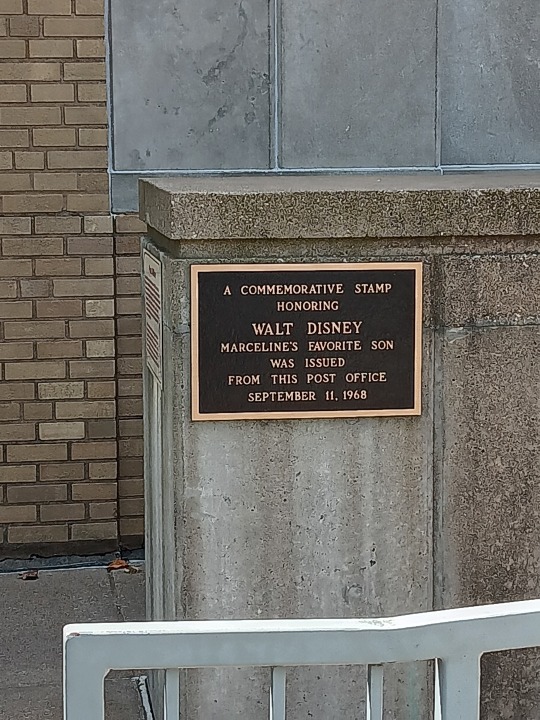
The radio station, call letters KDWD 99.1, the movie theater and many other buildings in town were Walt Disney's inspiration for the stores and shops along Main Street in both Disneyland in California and Walt Disney World in Florida. One of those places is a corner shop called Zurchers. It is on the corner of Main Street and Ritchie Avenue. Walt said it was the inspiration for Coke Corner at Disneyland and Casey's at Walt Disney World. A lot of people were unsure why as the architecture appeared to be quite a bit different and it just didn't seem to make sense. But after a fire took place in the back of Zurchers and part of the building was destroyed it became apparent where Mr. Disney got his inspiration. The back wall of the building behind Zurchers had a large Coca-Cola mural painted on the side of the building on the back corner of that block. When it was discovered after the fire they restored the original mural and it looks like this today.
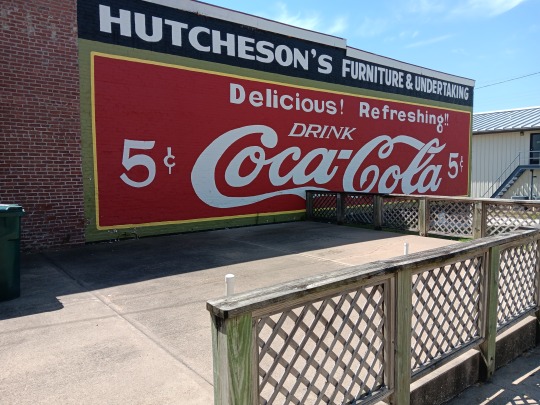
You can also tour the family farm and see the spot where Walt's Dreaming Tree stood. Then there is the barn which now is a place where you can you pay your respects to Walt Disney yourself. After the barn was restored the workers "autographed" their work and pretty soon visitors were doing the same. Now you really have a hard time finding a spot left to autograph!

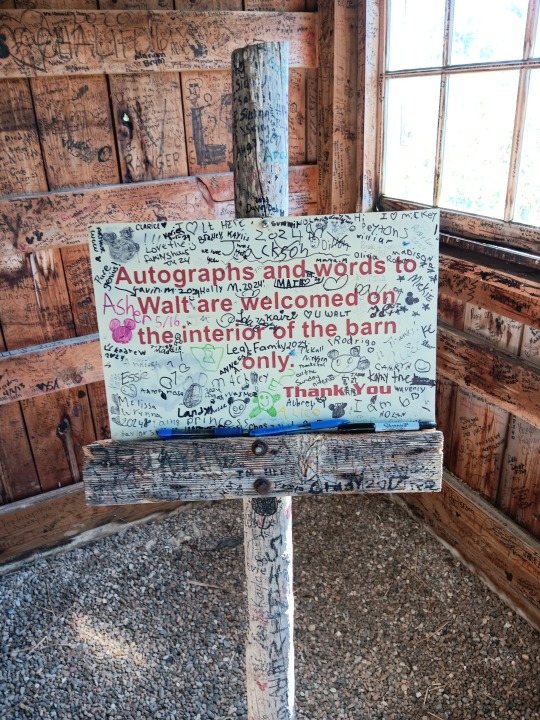

This little town in the heartland, that still in so many ways is reminiscent of turn of the 20th Century life in rural America has not simply faded into obscurity as a tourist attraction. It is a vibrant town with wonderful people and thriving on local industry. They also keep up with the times in other ways. While exploring the town you can scan a QR code at many locations and get in Paul Harvey's famous words, "the rest of the story" as it pertains to each location. I did not get to see or do everything in the time I had, but I plan to go back again... and I recommend that you do the same!
Postscript: Before I forget, Walt Disney loved trains. There are a lot of train related things to see in Marceline. They also have 75 trains a day go by just outside the museum.


5 notes
·
View notes
Text
"If I were the Devil"
Paul Harvey, the famous radio commentator, delivered "If I Were the Devil" in 1965. The piece is a reflection on how society could be led astray by moral decay and cultural deterioration. Harvey's hypothetical scenario outlines a plan the devil might undertake to lead humanity away from virtue.
"If I were the Devil"
If I were the Devil, I wouldn’t be happy until I had seized the ripest apple on the tree Thee.
So, I’d set about however necessary to take over the United States. I’d subvert the churches first. I’d begin with a campaign of whispers. With the wisdom of a serpent, I would whisper to you as I whispered to Eve: "Do as you please."
To the young, I would whisper, "The Bible is a myth." I would convince them that man created God instead of the other way around. I would confide that what is bad is good, and what is good is "square."
And the old, I would teach to pray after me: "Our Father, which art in Washington..."
And then I’d get organised. I’d educate authors in how to make lurid literature exciting, so that anything else would appear dull and uninteresting. I’d threaten TV with dirtier movies, and vice versa. I’d peddle narcotics to whom I could. I’d sell alcohol to ladies and gentlemen of distinction. I’d tranquillise the rest with pills.
If I were the Devil, I’d soon have families at war with themselves, churches at war with themselves, and nations at war with themselves until each, in its turn, was consumed. And with promises of higher ratings, I’d have mesmerizing media fanning the flames.
If I were the Devil, I would encourage schools to refine young intellects but neglect to discipline emotions—just let those run wild. Until before you knew it, you’d have to have drug-sniffing dogs and metal detectors at every schoolhouse door.
Within a decade, I’d have prisons overflowing. I’d have judges promoting pornography. Soon I could evict God from the courthouse, then from the schoolhouse, and then from the houses of Congress. And in His own churches, I would substitute psychology for religion and deify science. I would lure priests and pastors into misusing boys and girls, and church money.
If I were the Devil, I’d make the symbol of Easter an egg and the symbol of Christmas a bottle.
If I were the Devil, I would take from those who have and give to those who wanted until I had killed the incentive of the ambitious.
And what’ll you bet I couldn’t get whole states to promote gambling as the way to get rich?
I would caution against extremes in hard work, in patriotism, in moral conduct.
I would convince the young that marriage is old-fashioned, that swinging is more fun, that what you see on TV is the way to be. And thus I could undress you in public, and I could lure you into bed with diseases for which there is no cure.
In other words, if I were the Devil, I’d just keep right on doing what he’s doing.
#aul Harvey#If I Were the Devil#1965 broadcast#Radio commentary#Moral decay#Cultural decline#Society and ethics#Media influence#Moral values#American culture#Social commentary#Church and state#Religious values#Family dynamics#Moral philosophy#Traditional values#Social issues#Historical speech#Social reflection#Famous radio broadcasts#today on tumblr#new blog#quoteoftheday
2 notes
·
View notes
Text


Reminder: Vote based on the song, not the artist or specific recording! The tracks referenced are the original artist, aside from a few rare cases where a cover is the most widely known.
Lyrics, videos, info, and notable covers under the cut. (Spotify playlist available in pinned post)
At Last
Written By: Henry Warren & Mack Gordon
Artist: Etta James
Released: 1960
Originally recorded by: Glenn Miller and His Orchestra feat. Pat Friday & John Payne, 1941
A song originally written in 1941 by Mack Gordon and Harry Warren and originally performed by Glenn Miller and His Orchestra for the 1941 movie Sun Valley Serenade, this ballad found its greatest success in the hands of the late Etta James in this 1960 recording. The tune became James' signature song. The song is featured on several “best of” lists, including inclusion in the Library of Congress' National Recording Registry and induction into the Grammy Hall of Fame in 1999.
[Verse 1] At last My love has come along My lonely days are over And life is like a song (Oh, yeah, yeah) [Verse 2] At last The skies above are blue My heart was wrapped up in clover The night I looked at you [Bridge] I found a dream that I could speak to A dream that I can call my own I found a thrill to press my cheek to A thrill that I've never known (Oh, yeah, yeah) [Verse 3] You smiled, you smiled Oh, and then the spell was cast And here we are in heaven For you are mine at last
youtube
youtube
Dancing in the Dark
Written By: Bruce Springsteen
Artist: Bruce Springsteen
Released: 1984
The first single off of Springsteen’s seminal album Born In The U.S.A., this track was written two years after most of the other songs on the album. Producer Jon Landau thought the new album lacked a guaranteed hit and pushed Springsteen to draft one more song. The two men got into a brief altercation, after which Bruce wrote “Dancing in the Dark” about his ‘difficulty writing a hit single and his frustration trying to write songs that will please people’. Its music video contains an early appearance by actress Courtney Cox. It also helped introduce Springsteen to a younger audience, setting the stage for a seven-single run of top 10 hits from the album. “Dancing In The Dark” became Springsteen’s highest charting single the Boss has ever had, spending four weeks in the #2 position of the Billboard Hot 100 in the summer of 1984, held from the top spot by Duran Duran “The Reflex” and Prince “When Doves Cry”. It also spent six weeks at #1 on the Mainstream Rock chart. This single is also Springsteen’s only to be certified platinum.
[Verse 1] I get up in the evening And I ain't got nothing to say I come home in the morning I go to bed feeling the same way I ain't nothing but tired Man, I'm just tired and bored with myself Hey there, baby I could use just a little help [Chorus] You can't start a fire You can't start a fire without a spark This gun's for hire Even if we're just dancing in the dark [Verse 2] Messages keep getting clearer Radio's on, and I'm moving 'round my place I check my look in the mirror I wanna change my clothes, my hair, my face Man, I ain't getting nowhere I'm just living in a dump like this There's something happening somewhere Baby, I just know that there is [Chorus] You can't start a fire You can't start a fire without a spark This gun's for hire Even if we're just dancing in the dark [Bridge] You sit around getting older There's a joke here somewhere, and it's on me I'll shake this world off my shoulders Come on, baby, the laugh's on me [Verse 3] Stay on the streets of this town And they'll be carving you up all right They say, "You gotta stay hungry" Hey, baby, I'm just about starving tonight I'm dying for some action I'm sick of sitting around here trying to write this book I need a love reaction Come on now, baby, give me just one look [Chorus] You can't start a fire Sitting 'round crying over a broken heart This gun's for hire Even if we're just dancing in the dark You can't start a fire Worrying about your little world falling apart This gun's for hire Even if we're just dancing in the dark [Outro] Even if we're just dancing in the dark Even if we're just dancing in the dark Even if we're just dancing in the dark Hey, baby [Outro Saxophone Solo]
youtube
#at last#etta james#dancing in the dark#bruce springsteen#polls#poll tournament#poll bracket#tournament#bracket#lovesongbracket#round3
31 notes
·
View notes
Text


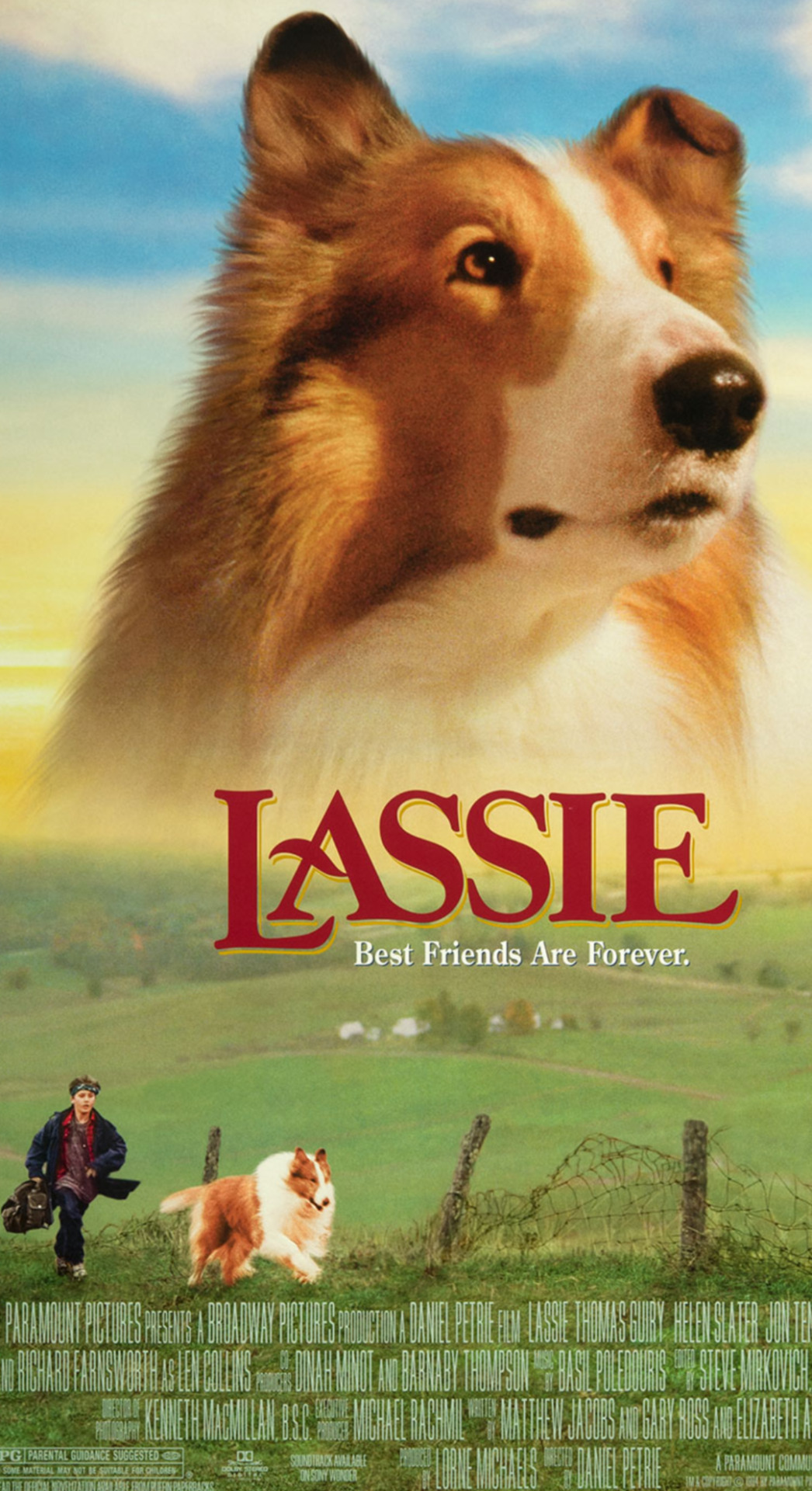

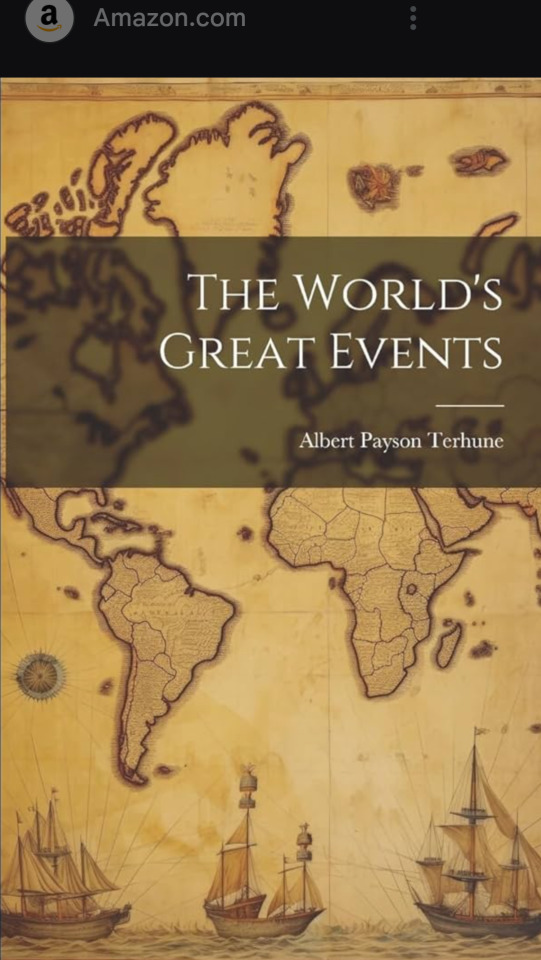
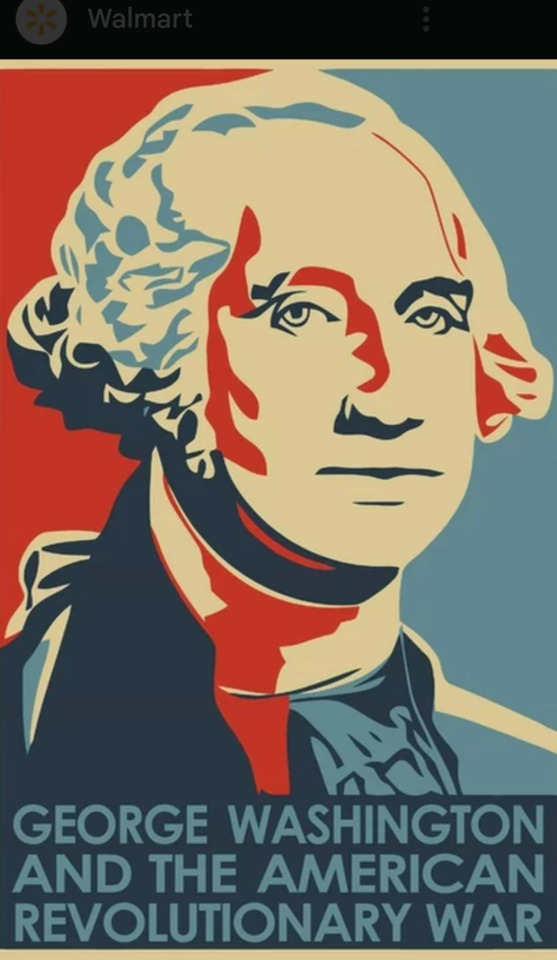
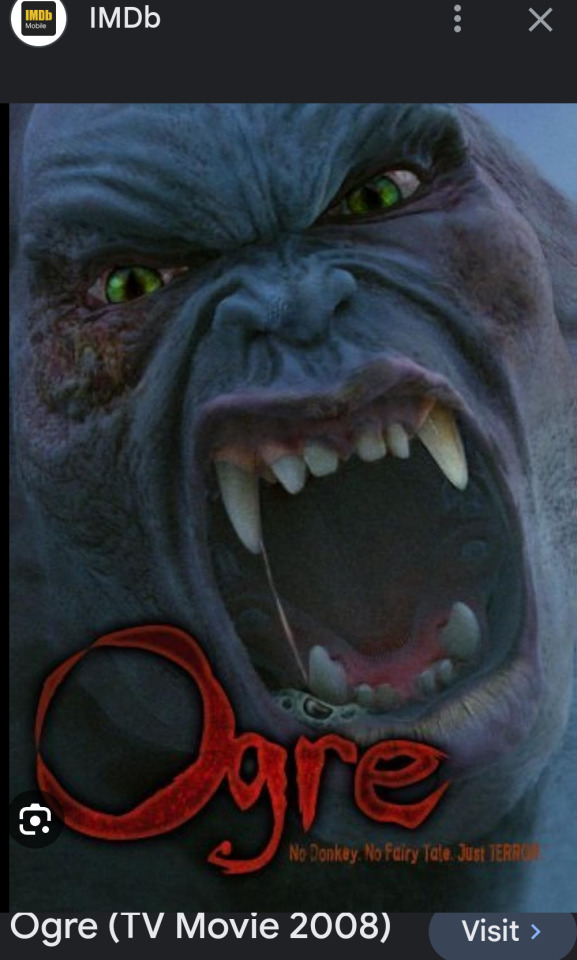

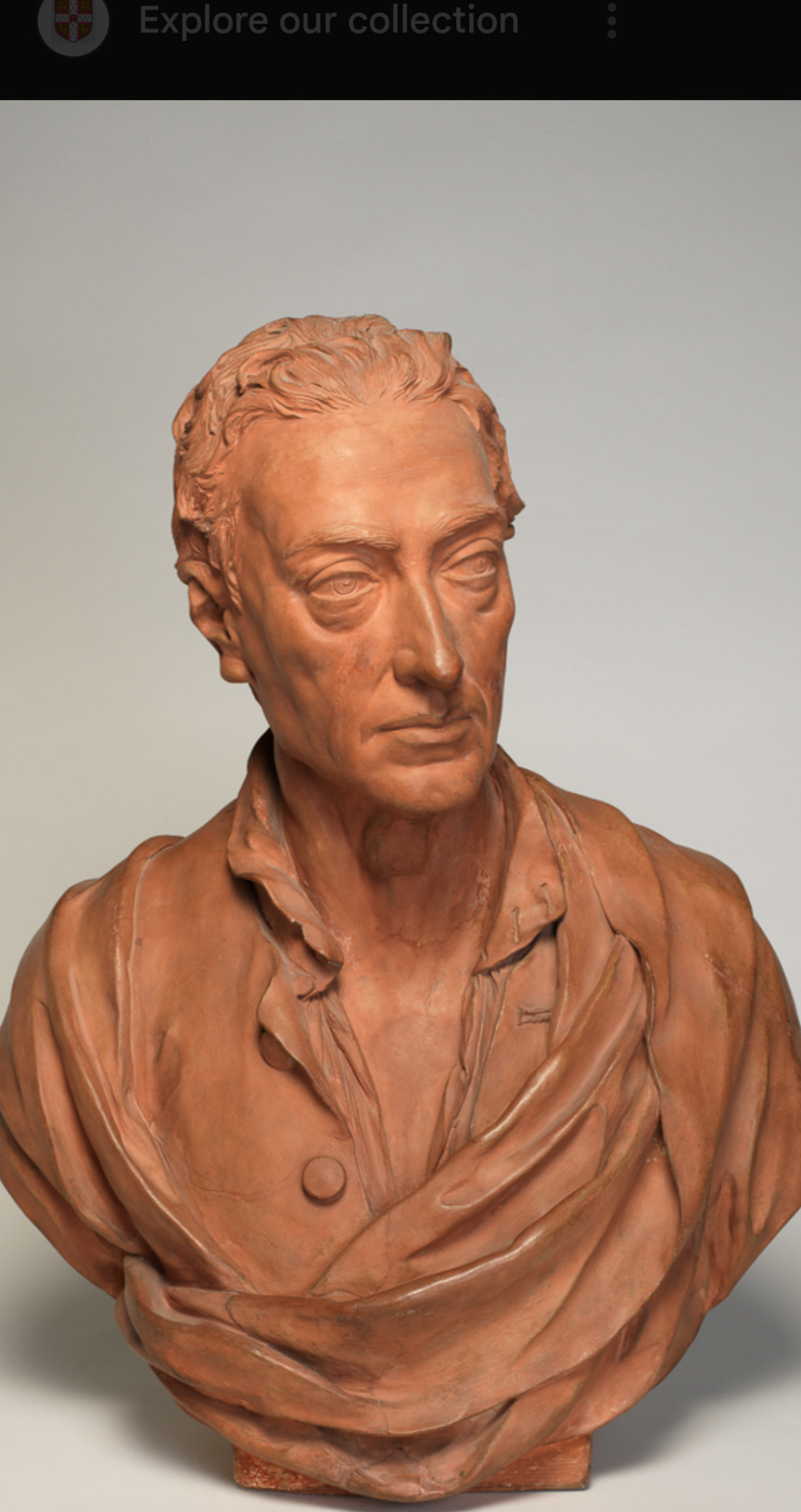

Pics: Bert Terhune related notes.
1. Mary Virginia Haws, Bert's mom was a writer of novels, travelogues, memoirs, domestic manuals, etiquette booklets & cookbooks.
2. Cover of 1 of her house 'running' books.
3. Who doesn't recognize a Lassie poster? This being for 1 of her many movies.
4 & 5. Covers of some of Bert's many works.
6. At least 1 of Bert's short stories focused on the danger that spies & assassins posed to General George Washington.
7. Poster for the "Ogre" TV movie, with a great tagline!
8. Bust of Cleisthenes, the Father of Athenian democracy.
9. Bust of Alexander Pope, the English poet, translator & satirist on society & politics.
10. John Dryden painting, an earlier English poet, literary critic, translator, satirist & playwright.
Notes (on yesterday's post):
1. The Adventurers Club of NY was a private men's club founded in 1912 by one A. Hoffman.
Its main functions were monthly dinners & a weekly lunch.
Their main rule was that "No one talks about Fight Club!"
There's complete silence on most of their activities.
Yet, for a secretive group, they certainly went out of their way to announce their events.
First, they published The Adventurer, a monthly newsletter that ran until 1960!
Then they had a weekly radio show, the Gold Seat Associates, where club members spoke of the most exciting moment of their lives.
The Adventurers Club finally faded out during the 1970s.
2. Lassie is the star of an American TV series (1954 to 1973) & several movies.
'She' (actually male dogs were used!) is a smart & fearless collie living in a Virginia farm with her companions - human or otherwise.
Later in the show, Lassie worked with forest rangers - out in the wilderness!
There's also an animated series that brought Lassie's heroic acts into the 2000s.
Lassie's latest film came out in 2022...
3. Mary V. Haws wrote several novels set in the southern states before the Civil War, which began in 1861.
(But, this was actually only after many decades of rising tensions - mostly on the subject of slavery.
It only ended after 4 years & some 610,000+ deaths!!)
Haws completed her last book at the age of 88 - while she was quite blind!
4. Other books by Bert Terhune are: "World's Great Events", "Famous American Indians", "Wonder Woman in History", "Around the World in 30 Days" & "Superwomen."
5. Scribblers are people who write for hire or as a hobby. Usually, scribblers worked for newspapers & magazines.
It's just that readers don't actually like their articles!
6. The American Revolution lasted from 1775 to 1783. Its causes were British taxes, the Boston Massacre & the Intolerable Acts.
Only 45% of colonists supported this war - as it forced neighbors against each other!
In Ben Franklin's case, it permanently tore his family apart...
7. Don't know why Lovecraft equates the famous folk he mentioned with ogres - except for Bonaparte, maybe.
Ogres are hideous looking, human eating giants from fairy tales & folk- lore.
It's no better in slang, as it describes "a person who's monstrously ugly, cruel or barbarous."
(Shrek they are not!)
Ogre comes to us thru France. But, it's actually from Etruscan (ancient north Italian nation & language) "Orcus", God of the Dead & punisher of oath- breakers.
8. "Where freedom 1st arose..."
A. This would be ancient Athens, in Greece on 508 BC. That's when Cleisthenes 1st set up a democratic government there.
(But, Howard could be referring to the American Revolution again.)
B. In that case, Congress did approve in becoming independent on July 2nd, 1776, thru the Lee Resolution.
We now celebrate when our politicians started signing the official Declaration of Independence, on July the 4th.
But, it took some time before all of the congressmen actually did so...
England didn't really 'recognize' our victory until the Paris Treaty of 1783!
Even then, Britain tried to 'reacquire' its 13 colonies during the War of 1812...
9. HPL seemed aware of his writing limits.
His evoking of imagery & emotion rested upon his skill at following strict poetic structures & his own aesthetic taste.
Lovecraft thought it more important to be formally correct, rather than to be creatively interesting.
10. As to Howard's personal writing style, it's actually his own copying of the forms of A. Pope & J. Dryden.
Pope was 1 of the most prominent writers of the 1700s.
Dryden was the 1st Poet Laureate of England & is chiefly responsible for introducing heroic couplets & the triplet into English poetic structures...
END.
#hpl output#history#adult lovecraft#notes#Lassie#american revolution#american civil war#democracy#ogre#english poets
3 notes
·
View notes
Text
My grandmother went to be with all of her loved ones who had walked before her on the morning of May 7th, and I can only imagine that she greeted them with as much rejoicing there as she ever did here.
Unlike my grandfather, my relationship with my grandmother is the furthest thing in the world from complicated. It was always easy. It was comfortable. It was home. She was baking bread and cookies homemade fudge and cross stitch and crochet and french fries at the Burger King at Andrews Air Force base. For the majority of my life my grandfather was an incidental accessory to the brightness that was my grandmother, and it broke my heart when that light dimmed at all eleven years ago when Sharon died.
I really think that it shattered both of our hearts in similar ways. We could barely look at each other for years without crying. Each of us a memory of what was lost and how alone we felt in holding it. She lost a daughter. I lost a mother. But we had each other in the middle of it all. An anchor to the grief we couldn’t articulate.
My grandmother was stacks and stacks of books and old movies and the air and space museum and the library of Congress. Music. Humming along with the radio. She was Christmas morning presents in a pink chair covered in an afghan. She is a bookmark in every book. She was orange juice in an old Tupperware cup. Raspberry tea with too much honey. A chocolate pudding snuck before bed. The soft humming click of a sewing machine. Click of her low heels and swish of her pocketbook on a Sunday morning. Hiss of hairspray. Turning pages of the hymnal to make sure I was keeping up with the verses.
Piano, and choir, and handbells. Sunday school. Church dinners. Oxen Hill farm. Making lunch for Grandpa before he went to work and greeting him with a snack when he got home. She is me standing on a chair in the kitchen to help knead bread. She is magnets on the never used front door. She’s a stuffed otter, and a seal, and a Garfield pillow. She is every new family child’s star baby blanket. She is my baby blanket. She is my Puck, when a tiny one year old wouldn’t put down a stuffed cat. She is the scolding I got after cutting the eyebrows off a mink teddy bear hiding under the coffee table.
She is hummingbirds. She is a stained glass Angel on the tv stand. Grapes from the backyard. Bubbles and playing in the bathtub water. Mickey Mouse computer games.
She was souvenirs from every trip. She was handing me a new book to take home every time I visited. She was always asking if I had met anyone that made me happy, and she was delighted when my answer was finally yes. She took a sum total of 24 hours to find her way to a God that loves my wife as much as I do. And who would never hesitate to be in my corner.
She was an only child from rural Indiana who joined the navy to have a future that looked different than her parents. She raised three children in Maryland, South Carolina, Florida, and California while my grandfather was deployed. After her children were grown she became a research librarian, never stopped learning new things, and was sharp as a fucking tack.
She was easy with praise and with joy and support and also firm in what she thought was right and wrong. She was the gentler, softer half of their marriage but she was also someone you never wanted to cross. They were equals in every way and loved each other fully. She followed where Troy led, and often waited until he came back to lead her where she intended them both to end up.
She was my eternal constant, the reason for my name. The first person to hold me when I was born. She took me to the nursery, carried me herself while my father stayed with my mother. My entire life she was a steady presence that I counted on to be there. Always safe. The last piece of home. I knew she would be gone one day but I would be lying if I said I was ready. I’ve always known that losing her would be the next axis shift in my world and it is.
Fair winds and following seas Meme. I love you.
8 notes
·
View notes
Text
The responsibility for **pro-American propaganda** (defined as organized efforts to promote U.S. policies, values, or influence) has historically involved a mix of **government agencies, private organizations, media outlets, and cultural institutions**. Below is a breakdown of key actors and their roles, with historical and modern examples, along with citations for further reading.
---
### **1. U.S. Government Agencies**
#### **Historical Efforts**
- **United States Information Agency (USIA)**:
Established in 1953 during the Cold War, the USIA managed overt propaganda through programs like **Voice of America (VOA)** and cultural exchanges (e.g., Fulbright Program) to counter Soviet influence.
- *Citation*: Cull, N. J. (2008). *The Cold War and the United States Information Agency: American Propaganda and Public Diplomacy, 1945–1989*. Cambridge University Press.
- **Central Intelligence Agency (CIA)**:
Conducted **covert propaganda** during the Cold War, secretly funding media outlets (e.g., *Encounter* magazine), cultural organizations (e.g., **Congress for Cultural Freedom**), and Radio Free Europe/Radio Liberty to promote pro-American narratives.
- *Citation*: Saunders, F. S. (1999). *The Cultural Cold War: The CIA and the World of Arts and Letters*. The New Press.
#### **Modern Efforts**
- **Global Engagement Center (GEC)**:
A State Department office created in 2016 to counter foreign disinformation, often by amplifying pro-democracy narratives. It works with tech companies and NGOs.
- *Citation*: U.S. Department of State. (2023). *Global Engagement Center*. [Link](https://www.state.gov/bureaus-offices/under-secretary-for-public-diplomacy-and-public-affairs/global-engagement-center/)
- **Broadcasting Board of Governors (BBG)**:
Oversees **Voice of America (VOA)**, Radio Free Asia, and other U.S.-funded outlets that broadcast news with a pro-American slant to global audiences.
- *Citation*: Boyd-Barrett, O. (2016). *Western Media Systems*. Routledge.
---
### **2. Military and Defense**
- **Psychological Operations (PSYOP)**:
The U.S. military conducts PSYOP to influence foreign populations, such as dropping leaflets in conflict zones (e.g., Afghanistan, Iraq) or using social media campaigns.
- *Citation*: U.S. Army. (2023). *Psychological Operations*. Field Manual 3-53.
- **Office of Strategic Influence (OSI)**:
A short-lived Pentagon office post-9/11 (2002) that proposed spreading pro-U.S. narratives overseas, including disinformation. It was disbanded after public backlash.
- *Citation*: Shanker, T. (2002). "Pentagon Readies Efforts to Sway Sentiment Abroad." *The New York Times*.
---
### **3. Private Sector and Media**
- **Hollywood and Entertainment**:
Films and TV shows often reflect U.S. cultural values (e.g., *Top Gun*, Marvel movies). The Pentagon and CIA have collaborated with filmmakers to shape narratives, offering equipment or script input in exchange for positive portrayals.
- *Citation*: Robb, D. L. (2004). *Operation Hollywood: How the Pentagon Shapes and Censors the Movies*. Prometheus Books.
- **Think Tanks and NGOs**:
Organizations like the **Heritage Foundation**, **Atlantic Council**, and **National Endowment for Democracy (NED)** promote U.S.-aligned policies globally, often with government funding.
- *Citation*: Parmar, I. (2012). *Foundations of the American Century: The Ford, Carnegie, and Rockefeller Foundations in the Rise of American Power*. Columbia University Press.
- **Social Media Companies**:
U.S. tech firms like Meta (Facebook), Google, and Twitter have partnered with U.S. agencies to counter foreign disinformation, sometimes blurring the line between public service and pro-U.S. bias.
- *Citation*: Benkler, Y. (2018). *Network Propaganda: Manipulation, Disinformation, and Radicalization in American Politics*. Oxford University Press.
---
### **4. Controversies and Criticisms**
- **Blurred Lines**:
Critics argue that U.S. propaganda often conflates "public diplomacy" with manipulative messaging. For example, the CIA’s Cold War covert ops damaged trust in U.S. media.
- *Citation*: Lucas, S. (1999). *Freedom’s War: The U.S. Crusade Against the Soviet Union, 1945–1956*. Manchester University Press.
- **Smith-Mundt Modernization Act (2013)**:
This law allowed U.S. propaganda (e.g., VOA content) to be disseminated domestically, raising concerns about government influence on American citizens.
- *Citation*: Hudson, J. (2013). "U.S. Repeals Propaganda Ban, Spreads Government-Made News to Americans." *Foreign Policy*.
---
### **Key Takeaway**
Pro-American propaganda is not centrally controlled but involves a decentralized network of **government, military, media, and private actors**. While much is framed as "public diplomacy" or "countering disinformation," critics warn of ethical risks, especially when messaging is covert or manipulative. For deeper insights:
- Read *The United States of Propaganda* by Rory O’Connor (2021).
- Explore declassified CIA documents via the National Security Archive: [CIA Propaganda](https://nsarchive.gwu.edu/).
0 notes
Text
FDR and the Movies
January 30 was the birthday of Franklin Delano Roosevelt (1882-1945). This is far from the best photo of FDR. It depicts his last address to Congress, in March, 1945, and he looks as old and frail as he was. I chose it because of what’s in front of him, microphones from all of the national radio networks. NBC and CBS you recognize, I’m sure. MBS was the Mutual Broadcasting System. And BLU was…
1 note
·
View note
Quote
Bindery Books: A Way to Restructure the Book Publishing Model August 2, 2023 by Mike Shatzkin 2 Comments The case has been made here repeatedly over years that the business and operating model of book publishing as it has been throughout my 50+-year career is irretrievably broken. And it is increasingly obvious that this is the case across all “content” businesses — newspapers, magazines, movies, TV, and radio — and for very much the same reasons. The primary challenge is that no content ever becomes unavailable anymore. So every book in the history of publishing is competing for attention with everything “newly available”. The other delivery forms suffer from a variation of this theme. For TV and movies, it is the same problem; all the content from the past is suddenly competing for attention every single day. For newspapers, the challenge is the loss of territorial exclusivity: once you’ve read the story of the latest bill passed by Congress or the account of last night’s game involving your favorite team in one of the prominent national and international sources of news (led by The New York Times and the Washington Post), you have no need to get that news again in your local daily paper. The failure of local papers demonstrates that most have no sustainable commercial proposition with local news alone. And magazines, being collections of shorter pieces, are now seeing each of them competing on their own against a virtually limitless supply of article postings and blogs from literally millions of sources.
Bindery Books: A Way to Restructure the Book Publishing Model - The Idea Logical Company
0 notes
Text
The Art Of Kindness Podcast: Making The World A Better Place

I first reviewed The Art of Kindness (AOK) in May 2023. In that review, I recommended the show and called it "a kind of soul-cleansing experience."
Since then, the host Robert Peterpaul has gotten married, interviewed the legendary Carol Burnett last November on the show's 100th episode, again celebrated World Kindness Day, and just started his fourth season in early November.
The Art of Kindness (AOK) bills itself as "A positively star-studded podcast that converses with and celebrates artists from all areas of the entertainment industry (Film, TV, Broadway, etc.) who use their platform to make the world a better place. Join The AOK as we sprinkle positivity around like confetti and get to the bottom of what kindness really means through compassionate conversations." In every episode, host Robert Peterpaul elicits tales from Broadway people and celebrities about how they sprinkle kindness throughout their world. Peterpaul always asks each guest, "What does kindness mean to you?" He also asks guests how they react to people praising them.
Robert Peterpaul is an award-winning actor, writer and celebrity interviewer with a passion for storytelling and spreading kindness.
He and his family formed the nonprofit THE THOMAS PETERPAUL FOUNDATION in honor of his late brother Thomas, who passed away from cancer. TPF has helped countless pediatric cancer patients and their families since its inception. Peterpaul notably teamed up with Novartis and spoke before Congress at the US Capitol on behalf of TPF to get the CAR T Cell Therapy approved. In addition, he works for the nonprofit Women In Entertainment, which assists women both working in and aspiring to work in the entertainment industry.
During episodes of the show, Peterpaul has the foresight to offer listeners a brief summary of the guest's career (usually Broadway), and that is helpful for non-Broadway listeners. In a fun episode with stage actor Stephanie Block, his summary before the interview gave me an intimate sense of how much she has accomplished in her career.
The Art Of Kindness is part of the Broadway Podcast Network, which offers listeners everything from a vast range of theatre, TV, and film-related programming, in addition to original radio plays, audio dramas, and even an original soap opera. Podcasts include As The Curtain Rises (a soap opera), The Musicals of Tomorrow, and The Great Game Broadway Game Show.
Recent guests of note include Iain Armitageis most recognized for his role as the title character in the hit CBS comedy YOUNG SHELDON, the prequel to THE BIG BANG THEORY which wrapped its 7th and final season in May 2024.
In August, Paul Feig, who has directed Bridesmaids, Last Christmas, The Heat, Ghostbusters, Spy, and A Simple Favor, was a guest and discussed a creating a kind environment on a TV or movie set. That's a topic that needs a lot of reflection.
Last week was Happy World Kindness Week, and the nonprofit organization, kindness.org, gave Robert Peterpaul the honor of guest hosting a very special episode of their Why Kindness? podcast where he spoke with kindness.org CEO & Co-Founder Jaclyn Lindsey, as well as the Kindlab team- Dr. Oliver Scott Curry & Dr. Chloe San Miguel about the organization and the science of kindness. On the episode a groundbreaking kindness measurement tool (KQ) was introduced.
Do you know your KQ? Visit kindness.org/KQ to get your KQ today. We should all try it. Then, we can find out if we are truly kind or just kind of a jerk.
I recommend listening to The Art Of Kindness podcast. I think Robert is on to something here beyond podcasting. It's about interacting with the external world and other people. Are we in competition with everyone else like in a zero-sum universe, or do we collaborate, cooperate, and support each other?
Which Ebenezer Scrooge are you? The one before being visited by three ghosts or the one who wakes up on Christmas morning?
Even if you know nothing about Broadway or the celebrities being interviewed, I suggest checking out Robert Peterpaul as he hosts The Art Of Kindness. He is the sunshine that overcomes the darkness of misinformation, conspiracy theories, and racial, ethnic and gender hate.
As writer Maya Angelou once said, "Try to be a rainbow in someone's cloud."
0 notes
Text
What Began as a War on Theater Won’t End There
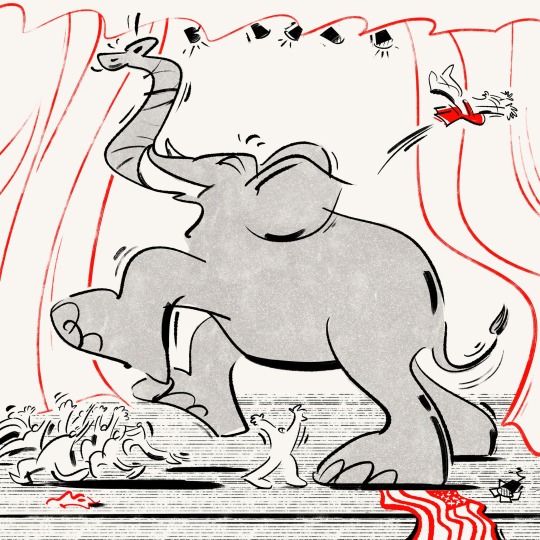
By James Shapiro
Mr. Shapiro is the author of the forthcoming “The Playbook: A Story of Theater, Democracy, and the Making of a Culture War.”
Productions of plays in America’s high schools have been increasingly under attack. In 2023, Anton Chekhov’s “Three Sisters” was rejected in Tennessee (since it deals with adultery); “August: Osage County,” the Pulitzer Prize-winning play by Tracy Letts, was canceled in Iowa after rehearsals had begun (the community was deemed not ready for it); and in Kansas, students were not even allowed to study, let alone stage, “The Laramie Project,” a play by Moisés Kaufman and members of the Tectonic Theater Project about the murder of a gay student, Matthew Shepard.
It should come as no surprise, then, that in the Educational Theater Association’s most recent survey, 85 percent of American theater teachers expressed concern about censorship. Even Shakespeare is at risk: In Florida, new laws led to the restriction of “A Midsummer Night’s Dream” to grades 10 through 12 and “Romeo and Juliet” could not be taught in full to avoid falling afoul of legislation targeting “sexual conduct.” Kill off young people’s exposure to theater, and you kill off a generation of playgoers, along with the empathy and camaraderie (already in short supply) that is intrinsic to theater. According to the latest report from the National Endowment for the Arts, from 2017 to 2022 the percentage of Americans who went even once a year to see a nonmusical play dropped by roughly half, from about 10 percent to less than 5 percent.
What begins as a war on theater never ends there.
The current attacks on theater in American schools have their origins in a struggle that took place in the late 1930s, when America’s political leadership believed that the arts, no less than industry and agriculture, were vital to the health of the Republic and deserving of its financial support. There was still an implicit understanding that theater and democracy — twinborn in ancient Greece, spheres where competing visions of society could be aired and debated — were mutually dependent. Funded by Congress as part of a Works Progress Administration relief bill and established in 1935, the Federal Theater Project by 1939 had staged over 1,000 productions in 29 states, seen free or for a pittance by 30 million spectators, or roughly one in four Americans, two-thirds of whom had never seen a play before.
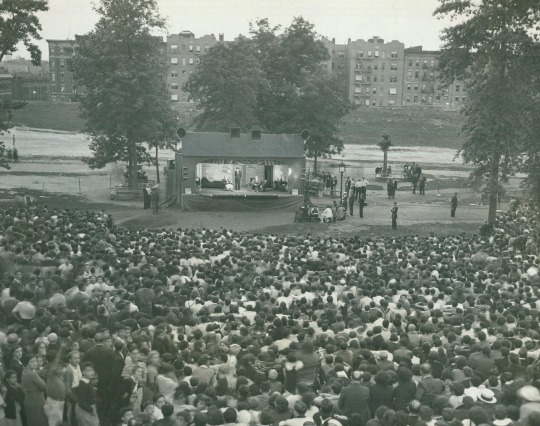
It brought children’s plays on touring trucks to kids in crowded cities. It staged works in Spanish, Yiddish and Italian to reach immigrants. It established what it called Negro units from Hartford, Conn., to Seattle to support Black actors and playwrights. It staged Christmas plays and classics by Shakespeare and Euripides and nurtured young playwrights and directors, including Arthur Miller and Orson Welles. It brought free theater to asylums, orphanages, hospitals, prisons and veterans’ homes. It revived playgoing in rural states where the movies had all but ended it. Ten million listeners a week tuned in to its radio broadcasts. It established ties with hundreds of educational, fraternal, civic and religious groups, strengthening communal bonds.
It turned out that Americans were hungry for plays about issues that mattered to their lives, topics largely shunned by Hollywood and the commercial stage. So they flocked to see new plays about substandard housing and the plight of struggling farmers. One of the most remarkable Federal Theater ventures was a stage version of Sinclair Lewis’s novel “It Can’t Happen Here,” in which a fascist is elected president of the United States. It opened on the same day, Oct. 27, 1936, in 18 cities across the country, and by the time it closed, more than 379,000 Americans had seen it. The cost of these thousand or so productions to taxpayers was roughly the price of building a single battleship.
The program’s popularity contributed to its undoing. Many of those in Congress who had voted to fund the Federal Theater became frightened by its reach and impact, its interracial casting, its challenge to the status quo — frightened, too, perhaps, by the prospect of Americans across racial, economic and political divides sitting cheek by jowl in packed playhouses.
Three years after the creation of the Federal Theater, Congress authorized the establishment of what would become the House Un-American Activities Committee, chaired by Martin Dies of Texas. It was to supposed to spend seven months investigating the rise of Nazism, fascism and communism in America and submit a report. The ambitious Mr. Dies, desperate to have his committee’s life extended, instead focused much of his attention on a more vulnerable target: the Federal Theater, accusing it of disseminating offensive and communistic and therefore un-American values. In the course of waging and winning this battle, he assembled a right-wing playbook so pervasive that it now seems timeless. He succeeded wildly: All Federal Theater productions were abruptly terminated in 1939, and the House Un-American Activities Committee lasted until 1975. With a nascent national theater now destroyed, targeting theater in schools was the inevitable next step for his successors, who — whether cynical politicians or school board members eager to police what offends their sensibilities — have all stolen a page from the Dies playbook.
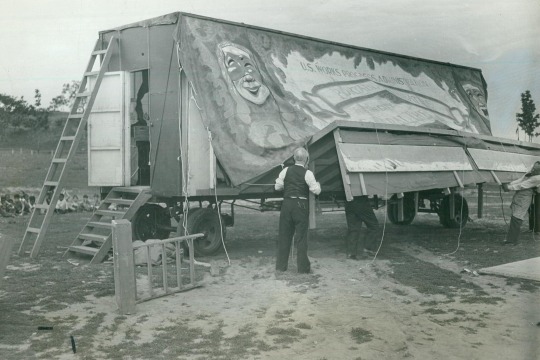
It’s hard to imagine what America would be like today had support for the Federal Theater continued and Mr. Dies’s committee not been renewed. Counterfactual history is best left to novelists. But a more vibrant theatrical culture extending across the land might well have led to a more informed citizenry and, by extension, a less divided and more equitable and resilient democracy. What happened instead was that Mr. Dies begat Joseph McCarthy, who begat Roy Cohn, who begat Donald Trump.
Some of those familiar with this history haven’t given up. Right now, artists are preparing projects that on July 27 will open simultaneously in 18 U.S. cities and towns, much as “It Can’t Happen Here” did in 1936. Under the rubric of Arts for EveryBody, the initiative is bringing together performers, audiences, community leaders and local officials. It is a small start and a promising one. So, too, is legislation coming before Congress, the STAGE Act of 2024, that would provide badly needed support for endangered nonprofit theaters across the land. Passing it should be a no-brainer, but there’s a likelihood that the Dies playbook will be used to defeat it. Until those in power in this country pivot from suppressing theater to investing in it, it’s not just the arts but also democracy itself that remains vulnerable.
1 note
·
View note